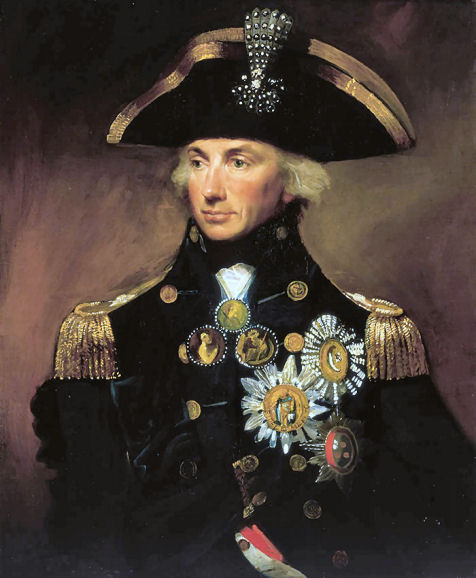
Vice-Admiral Horatio Nelson, born in 1758, was a British flag officer made famous in the Battle of Trafalgar. In this decisive British victory he lost his life. Nelson had the ability to inspire and bring out the best in his men and would heroically cut through the enemy’s lines. He ranks as one of the greatest naval commanders in military history. Many consider him to have been one of the greatest warriors of the seas. By the time of his death in 1805 Nelson had become a national hero, and he was given a State funeral.
Victory
Westminister Abbey, or victory!
(In the battle off Cape St. Vincent, giving the order for boarding the San Josef. Life of Nelson Vol. I, Ch. 4)
A Glorious Victory
May the Great God, whom I worship, grant to my Country and for the benefit of Europe in general a great and glorious victory; and may no misconduct in anyone tarnish it; and may humanity after Victory be the predominant feature of the British fleet. For myself, individually, I commit my life to Him who made me, and may His blessing light upon my endeavours for serving my Country faithfully. To Him I resign myself and the just cause which is entrusted to me to defend. Amen. Amen. Amen.
(Dispatches and Letters of Horatio Nelson: a diary entry on the eve of the battle of Trafalgar)
England Expects
England expects that every man will do his duty.
(Life of Nelson: A signal to the British fleet at the battle of Trafalgar)
Gain the Victory
First gain the victory and then make the best use of it you can.
(Before the battle of the Nile)
Ship before the Enemy
When I am without orders and unexpected occurrences arrive I shall always act as I think the honour and glory of my King and Country demand. But in case signals can neither be seen or perfectly understood, no captain can do very wrong if he places his ship alongside that of the enemy.